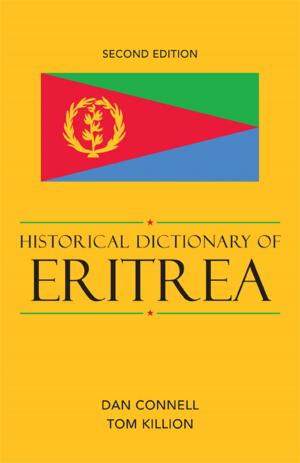Historical Dictionary of Namibia
Nonfiction, History, Africa, South Africa, Reference & Language, Dictionaries, Reference| Author: | Victor L. Tonchi, William A. Lindeke, John J. Grotpeter | ISBN: | 9780810879904 |
| Publisher: | Scarecrow Press | Publication: | August 31, 2012 |
| Imprint: | Scarecrow Press | Language: | English |
| Author: | Victor L. Tonchi, William A. Lindeke, John J. Grotpeter |
| ISBN: | 9780810879904 |
| Publisher: | Scarecrow Press |
| Publication: | August 31, 2012 |
| Imprint: | Scarecrow Press |
| Language: | English |
On March 21, 1990, Sam Nujoma was sworn in as the first president of independent Namibia. This ceremony marked the end of a struggle that lasted more than two decades and a period of colonialism that lasted more than a century. Finally, after decades long wars over grazing in the 19th century, genocidal colonial suppression by Germany at the beginning of the 20th century, repressive apartheid racialism throughout the 20th century, and a prolonged armed liberation struggle, Namibians had the chance to choose their own leaders, develop a democratic political process in a free society, and to bring economic development and greater equity to their country.
The Historical Dictionary of Namibia covers the history of Namibia through a chronology, an introductory essay, appendixes, and an extensive bibliography. The dictionary section has several hundred cross-referenced entries on important personalities, politics, economy, foreign relations, religion, and culture. This book is an excellent access point for students, researchers, and anyone wanting to know more about Namibia.
On March 21, 1990, Sam Nujoma was sworn in as the first president of independent Namibia. This ceremony marked the end of a struggle that lasted more than two decades and a period of colonialism that lasted more than a century. Finally, after decades long wars over grazing in the 19th century, genocidal colonial suppression by Germany at the beginning of the 20th century, repressive apartheid racialism throughout the 20th century, and a prolonged armed liberation struggle, Namibians had the chance to choose their own leaders, develop a democratic political process in a free society, and to bring economic development and greater equity to their country.
The Historical Dictionary of Namibia covers the history of Namibia through a chronology, an introductory essay, appendixes, and an extensive bibliography. The dictionary section has several hundred cross-referenced entries on important personalities, politics, economy, foreign relations, religion, and culture. This book is an excellent access point for students, researchers, and anyone wanting to know more about Namibia.















